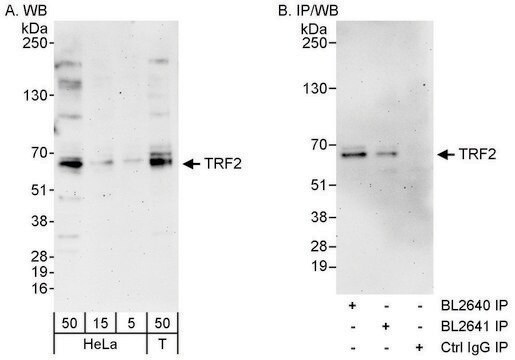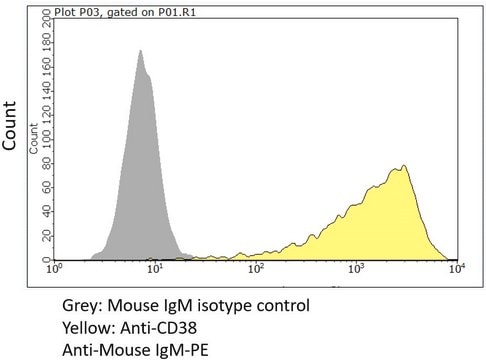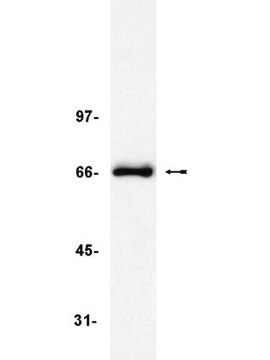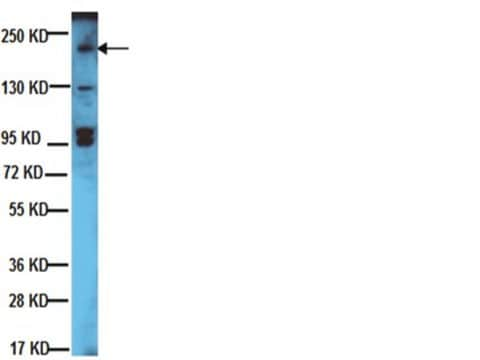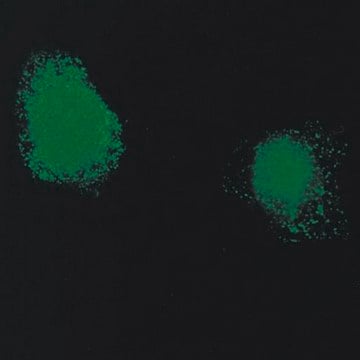MABE1135
Anti-TRF2 Antibody, clone T2JKM3
clone T2JKM3, from mouse
Synonym(s):
Telomeric repeat-binding factor 2, TTAGGG repeat-binding factor 2, Telomeric DNA-binding protein, TERF2
About This Item
Recommended Products
biological source
mouse
antibody form
purified immunoglobulin
antibody product type
primary antibodies
clone
T2JKM3, monoclonal
species reactivity
human
packaging
antibody small pack of 25 μg
technique(s)
immunocytochemistry: suitable
western blot: suitable
isotype
IgG1κ
NCBI accession no.
UniProt accession no.
target post-translational modification
unmodified
Gene Information
human ... TERF2(7014)
General description
Specificity
Immunogen
Application
Western Blotting Analysis: A 1:200 dilution from a representative lot detected TRF2 in HT1080 cell lysate.
Epigenetics & Nuclear Function
Quality
Western Blotting Analysis: 1 µg/mL of this antibody detected TRF2 in HT1080 cell lysate.
Target description
Physical form
Storage and Stability
Other Notes
Disclaimer
Not finding the right product?
Try our Product Selector Tool.
Certificates of Analysis (COA)
Search for Certificates of Analysis (COA) by entering the products Lot/Batch Number. Lot and Batch Numbers can be found on a product’s label following the words ‘Lot’ or ‘Batch’.
Already Own This Product?
Find documentation for the products that you have recently purchased in the Document Library.
Our team of scientists has experience in all areas of research including Life Science, Material Science, Chemical Synthesis, Chromatography, Analytical and many others.
Contact Technical Service